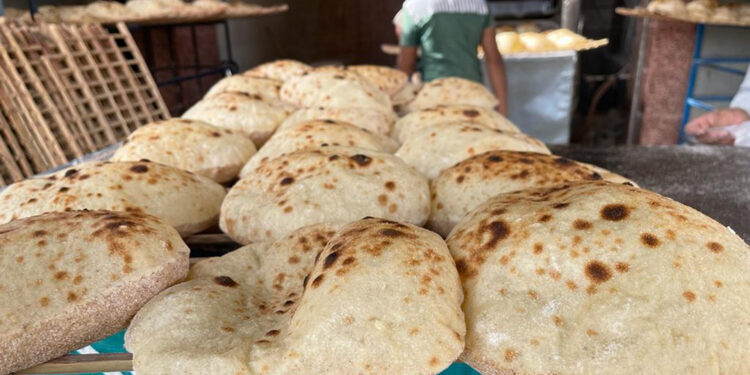Reuters quoted 5 informed sources that Egypt has made plans to reduce wheat imports and reduce spending on subsidized bread by adding corn or sorghum to its ingredients.
According to the Reuters report, the proposals may save the government millions of dollars, but they face opposition from bakery and mill owners who may lose financially and say they will affect the quality of bread.
Egypt is facing an increase in debt, inflation, and a shortage of foreign currencies, and the government says that the bread subsidy program constitutes a large burden on the budget and that it is seeking to gradually cancel it.
Two sources in the bakery sector said that the latest plan of the Ministry of Supply – which was presented to bakeries and mills at the end of last September – indicates mixing corn flour with wheat flour in a ratio of one to four starting next April, which could save up to one million tons of Wheat.
Three of the sources said that the government canceled a previous plan to increase the rate of flour extraction from wheat in the flour used in subsidized bread, after opposition from pressure groups in the sector.
Egypt has put forward proposals to replace wheat in the past as it seeks to achieve greater self-sufficiency, and used corn for years two decades ago before a campaign by sector groups pushed the government to abandon it.
Providing hard currency
Two sources said that introducing cornmeal as an ingredient could allow significant savings in hard currency if locally grown corn is used, rather than imported.
The cost of Russian wheat, which Egypt relies heavily on, is about $220 per ton at current market prices, while the price of corn is about $200 per ton, according to data from the London Stock Exchange Group.
Hisham Soliman, a trader based in Cairo, said, “When we say that the government will provide, the difference will not exceed $35-41 per ton,” referring to the widest possible difference between the two prices.
Suleiman and the five sources added that the change may be unpopular, as it could lead to bread being produced with a different texture and smell.
The Egyptian Ministry of Supply needs about 8.25 million tons of wheat annually to provide subsidized bread for more than 70 million Egyptians, according to the 2024-2025 budget.
The government obtains about 3.5 million tons of wheat from local farmers and imports the remaining share.
The General Authority for Supply Commodities told Reuters on Friday that the subsidized bread system is “stable.”
An unprecedented direct supply deal
Egypt is one of the largest wheat importers in the world, spending about 104 billion pounds ($2.1 billion) annually on imports, most of which come from Russia.
The General Authority for Supply Commodities – Egypt’s government grain buyer – attempted its largest-ever exercise last August, which was ordered by Egyptian President Abdel Fattah El-Sisi with the aim of hedging geopolitical risks.
But the Authority obtained only 7% of the targeted quantity of 3.8 million tons.
The country has explored options including bank loans to buy wheat and making direct deals with traders.
Sources told Reuters on Wednesday that the authority concluded a direct deal to purchase a quantity of Black Sea wheat between last November and April, and one source estimated the total quantity at about 3.12 million tons.
In another cost-saving move, the government raised the price of subsidized bread this year for the first time in decades.
At the end of last August, officials proposed a plan to increase the rate of flour extraction from wheat for subsidized bread to 93.3% from 87.5%.
The General Authority for Supply Commodities confirmed on Friday its commitment to the specifications and rates of flour extraction from wheat.
In addition, three sources in the bakery sector said that the Ministry of Supply proposed using cheaper corn flour to make bread, an idea that has not been completely backed down.
Opposition to bakeries
Bakeries oppose the plan, saying flour with a higher percentage of bran would require longer baking times and would increase labor costs.
Mills also oppose the plan because they receive payments based on the amount of wheat they grind, which is expected to be reduced.
Data from the US Department of Agriculture show that Egypt consumes about 15.3 million tons of corn annually, and uses it mainly to feed animals.
While the quantities of the crop produced locally decreased over the past two years to about 7 million tons, a decrease that experts attribute to climate change and pests, the government announced a plan to expand corn cultivation in reclamation projects implemented by the state.
Egypt grows sorghum in small quantities, and imports $1 million worth of seeds annually, mostly from India. It also imports $1 million worth of sorghum, according to the United Nations Comtrade database.



